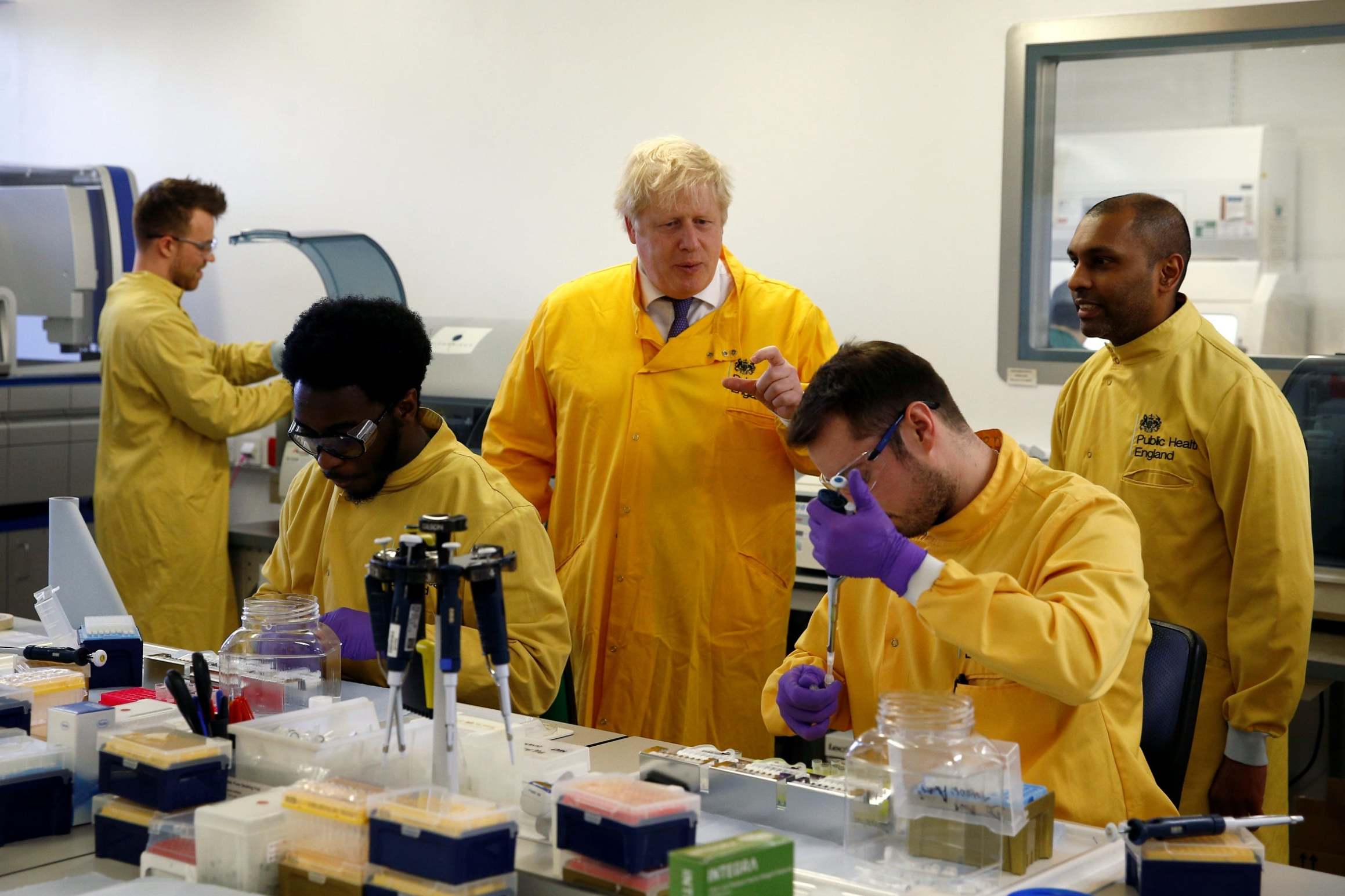Boris Johnson cannot hide behind experts forever – this shameful blame game has to stop
Johnson must now become part of the solution. We can have arms-length agencies, but we cannot have an arms-length prime minister


Three weeks before the 2016 EU referendum, Michael Gove told us that “people in this country have had enough of experts”. But when the coronavirus struck, Boris Johnson and his ministers decided that experts were back in fashion.
Their scientific and medical advisers shielded ministers from awkward questions at the daily Downing Street press conferences. They were “following the science”, so how could they be wrong? At the time, few dared to doubt the advisers’ judgement. Of course, we all wanted them to be right.
It’s becoming clear that our politicians should have asked their experts much more searching questions. Why did the UK initially act as if it faced a flu pandemic? Why was testing capacity not increased earlier? Why was a coronavirus lockdown not considered earlier?
Six months on, the experts are being cast in a different role as ministers play a shameless blame game to insure themselves against criticism at an eventual public inquiry. The scapegoating also explains why Johnson has delayed an inquiry. It gives time to build a narrative in which Macavity-like ministers are never at the scene of any mistakes. If I were a member of the Scientific Advisory Group for Emergencies (Sage), I would be making detailed notes about what happened in the first three months of this year.
Ministers and their aides have been sniping at Public Health England (PHE) since May. PHE staff might have been shocked to learn last weekend in The Sunday Telegraph of their agency’s demise, but they shouldn’t have been. (Similarly, civil servants had no warning when the Department for International Development (DfID) was gobbled up by the Foreign Office).
It is very odd to make structural changes to health bodies in the middle of a pandemic. In a round of interviews today, Matt Hancock, the health secretary, argued that putting PHE under the same umbrella as NHS Test and Trace and the Joint Biosecurity Centre would better protect the UK against the virus this winter, so it would be wrong to delay the shake-up.
What he didn’t say was that the move would also protect ministers at the inquiry. They can argue that they have already learnt lessons by reforming PHE. The subtext: PHE messed up at the start, but we’ve already sorted it. Yet PHE wasn’t the only guilty party: the decision to end community testing and the lack of capacity also involved the NHS, the Department of Health, ministers and their other advisers.
The same playbook was followed in the controversy over A-level grades. Gavin Williamson, the education secretary, ensured that Ofqual, the exams regulator, took the rap in a barefaced attempt to save his own skin. Williamson’s claim that he became aware of problems with Ofqual’s algorithm only last weekend is not credible. He ordered the regulator to limit grade inflation. The Education Select Committee flagged up the problem facing pupils from disadvantaged backgrounds on 11 July. Williamson had been aware for five months of the need to ensure fair grades in a summer without exams. He is just as culpable as Ofqual.
Arms-length bodies such as PHE and Ofqual provide useful cover for politicians. It is very hard for their leaders to speak out or answer back. Even the best advisers are not much use if ministers are weak. A vital task for a minister is to ask probing questions and challenge their advisers. They failed to do enough of this at the start of the Covid-19 outbreak and over A-level grades.

Ministers rightly admit that easing the lockdown involves fine political judgements that scientists cannot make. Scapegoating advisers might work for a while but with diminishing returns. Many people will barely have heard of Ofqual or PHE until this week; they might judge that the buck stops with the government.
The exam grades fiasco is a real world story that has touched millions, advertising the incompetence of the government, not its advisers. Johnson’s team might think it is good at the blame game. True, it can grab a good headline from its cheerleaders in the press (though Williamson has few friends left, even there). This shouldn’t mask the abject failure of ministers to stand up to their experts, even more important in an unprecedented crisis that would have tested any administration to the limit.
We are governed by a team that is undoubtedly good at running election and referendum campaigns but not at governing. Johnson himself is part of the problem.
Being a hands-off chairman of the board worked while he was mayor of London. It is not working in national government. He had a strong team of deputies and advisers at City Hall. He has a weak cabinet dominated by Brexiteers like Priti Patel, and trusted loyalists, like Williamson, who are out of their depth.
Johnson must now become part of the solution. We can have arms-length agencies, but we cannot have an arms-length prime minister.
Join our commenting forum
Join thought-provoking conversations, follow other Independent readers and see their replies
Comments
Bookmark popover
Removed from bookmarks